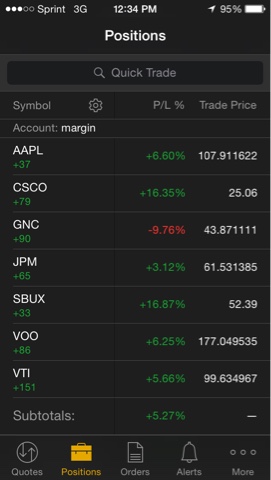"What are Consensus Earnings?
Consensus earnings estimates are far from perfect, but they are watched by many investors and play an important role in measuring the appropriate valuation for a stock. Investors measure stock performance on the basis of a company's earnings power. To make a proper assessment, investors seek a sound estimate of this year's and next year's earnings per share (EPS), as well as a strong sense of how much the company will earn even farther down the road. (For further reading, see Earnings Guidance: The Good, The Bad And Good Riddance?)
That's why, as part of their services to clients, large brokerage firms such as Citigroup and Merrill Lynch (the "sell side" of Wall Street and other investment communities) employ legions of stock analysts to publish forecast reports on companies' earnings over the coming years.
A consensus forecast number is normally an average or median of all the forecasts from individual analysts tracking a particular stock. So, when you hear that a company is expected to earn $1.50 per-share this year, that number could be the average of 30 different forecasts. On the other hand, if it's a smaller company, the estimate could be the average of just one or two stock analyst forecasts.
A few companies, such as Thomson First Call, Reuters and Zacks Investment Research, compile estimates and compute the average or consensus. Consensus numbers can also be found at a number of financial websites, including Yahoo! Finance and MSN MoneyCentral. Some of these sites also show how estimates get revised upwards or downwards.
Consensus estimates of quarterly earnings are published for the current quarter, the next quarter and so on for about eight quarters. In some cases, forecasts are available beyond the first few quarters. Forecasts are also compiled for the current and next 12 month periods.
A consensus forecast for the current year is reported once actual results for the previous year are released. As actual numbers are made available, analysts typically revise their projections within the quarter or year they are forecasting.
Even the most sophisticated investors - such as mutual fund and pension fund managers - rely heavily on consensus estimates. Most of them do not have the resources to track thousands of publicly-listed companies in detail - or even to keep tabs on a fraction of them, for that matter.
DEFINITION of 'Consensus Estimate'
A figure based on the combined estimates of the analysts covering a public company. Generally, analysts give a consensus for a company's earnings per share and revenue; these figures are most often made for the quarter, fiscal year and next fiscal year. The size of the company and the number of analysts covering it will dictate the size of the pool from which the estimate is derived.
INVESTOPEDIA EXPLAINS'Consensus Estimate'
When you hear that a company has "missed estimates" or "beaten estimates", these are references to consensus estimates. Based on projections, models, sentiments and research, analysts strive to come up with an estimate of what the company will do in the future.
Obviously, consensus estimates are not an exact science. This leads some market pundits to believe that the market is not as efficient as often purported, and that the efficiency is driven by estimates about a multitude of future events that may not be accurate. This might help to explain why a company's stock quickly adjusts to the new information provided by quarterly earnings and revenue numbers when these figures diverge from the consensus estimate.
Conclusion: Implications for Investors
Consensus estimates are so powerful that even small deviations can send a stock higher or lower. If a company exceeds its consensus estimates, it is usually rewarded with an increase in stock price. If a company falls short of consensus numbers - or sometimes if it only meets expectations - its share price can take a hit.
With so many investors watching consensus numbers, the difference between actual and consensus earnings is perhaps the single most important factor driving share-price performance over the short term. This should come as little surprise to anyone who has owned a stock that "missed the consensus" by a few pennies per share and, as a result, tumbled in value.
For better or for worse, the investment community relies on earnings as its key metric. Stocks are judged not only by their ability to increase earnings quarter over quarter, but also by whether they are able to meet or beat a consensus earnings estimate. Like it or not, investors need to keep an eye on consensus numbers in order to keep tabs on how a stock is likely to perform."
















































